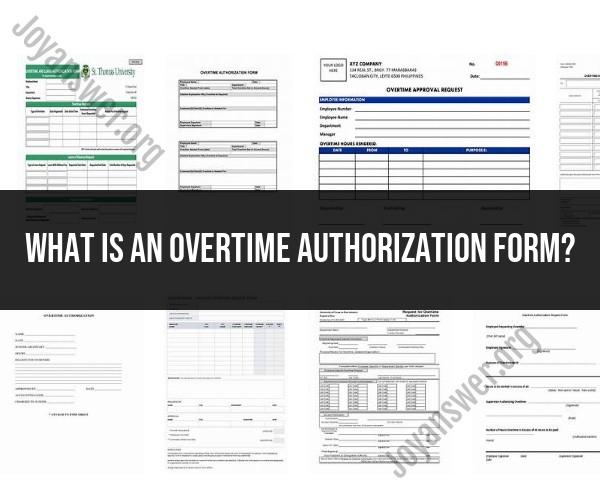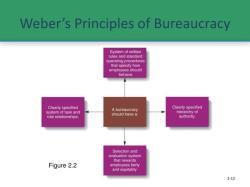What is an overtime authorization form?
An overtime authorization form is a document used by employers to record and authorize overtime work for their employees. Overtime refers to the hours worked by an employee beyond their regular, typically 40-hour, workweek. Overtime authorization forms serve several purposes:
Authorization: The form is used to formally authorize an employee to work additional hours beyond their regular schedule. This ensures that both the employer and employee are in agreement about the need for overtime work.
Documentation: It serves as a record of the overtime hours worked by an employee. This documentation is essential for payroll processing, as overtime hours often come with higher pay rates than regular hours.
Compliance: Overtime authorization forms help ensure compliance with labor laws and company policies. They demonstrate that overtime work was approved in advance, which can be important in case of disputes or audits related to wage and hour regulations.
Transparency: It provides transparency regarding the reasons for requiring overtime work. Employers typically specify the purpose of the overtime, such as a specific project or workload, on the form.
The specific information included on an overtime authorization form may vary depending on the employer's policies and practices. However, common elements often found on such forms include:
- Employee's name and identification details.
- Date and time when overtime is authorized.
- Purpose or reason for overtime.
- Supervisor or manager's signature, indicating approval.
- Overtime pay rate (if different from regular pay).
- Acknowledgment by the employee.
It's essential for both employers and employees to follow established overtime procedures and obtain proper authorization to ensure accurate compensation and legal compliance. Labor laws governing overtime pay can vary by country and region, so it's essential for employers to be aware of and adhere to the relevant regulations.












